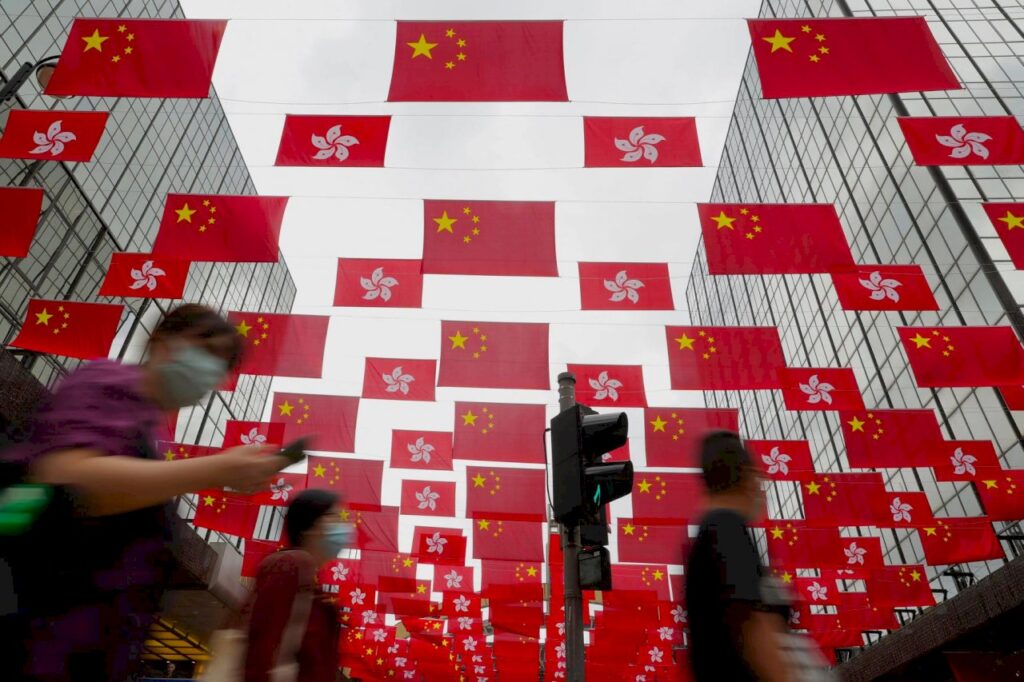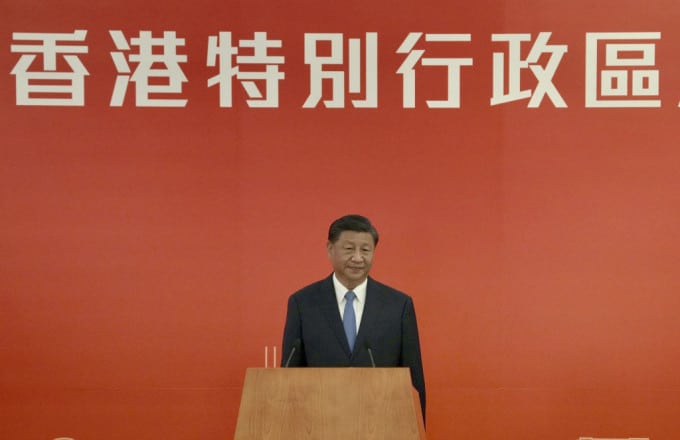The generational struggle is the distance between Xu Guanjie and Denise Ho. This past weekend, both singers held online concerts to accompany Hong Kong people during the epidemic. Every generation has its own trends. Citizens share performance links according to their personal preferences and see whose songs their friends repost, which can give a glimpse of the network faults created by the generation gap. The government's high-profile support is destined to politicize the singer, and it is accompanied by a cultural debate among the people to evaluate whether the Lion Rock Spirit is outdated, which is like another portrayal of intergenerational conflicts.
Core values are very different
Xu Guanjie symbolizes the glory days of Cantonese pop music and will always occupy a place in Hong Kong culture. When tracing the origin of local consciousness, "Iron Tower Ling Yun" is often taken as the starting point, which is important to know. Millennials, and early ones too, may have only heard of "Keep Smiling," written by Sarsaparilla. Denise Ho broke away from the mainstream music scene to become an independent singer, living the rock spirit of challenging authority, and establishing her citizenship through affirmative action. This is the epitome of the shift of core values from economic development and social stability to social justice and citizen participation. The Lion Rock spirit of the previous generation of Hong Kong people who lived in peace and contentment and would succeed if they worked hard is now seen as living in a sick society with an unfair system. They work silently and without complaint, and are jokingly called "Lion Rock Psychosis" by young people.
The recent news about the 30th anniversary of the promulgation of the Basic Law has attracted another wave of attention among the social elites. When it comes to disputes over implementation, they often point the finger at education issues. In fact, today's primary and secondary schools already have designated class hours, and nine out of ten university students have taken the Civil Service Recruitment Examination (CRE). They have at least read the Basic Law from the beginning and are more familiar with the book than the older generation who grew up before the return. So, rather than a lack of education, it is more a difference in values. Another example is that after the Wall Street Journal's insulting headlines during the pandemic caused China to expel three of the newspaper's Beijing-based reporters, the United States designated five Chinese news organizations as foreign missions, and Beijing also took the same countermeasures. . This is a diplomatic incident and a state act beyond the high degree of autonomy of Hong Kong. It also involves the immigration policy over which Hong Kong has jurisdiction and the freedom of the press protected by the Basic Law. The establishment camp certainly shares the same hatred for the mainstream, and the traditional pan-democrats do not pursue the issue even though they have criticisms. Only the younger generation is still crying out that the rule of law has collapsed. This reflects that the same event can contain multiple "one country, two systems" elements, and people's beliefs, rather than their cognition, will have a greater impact on the importance they attach to these elements.
Multiple parties shape the future imagination of one country, two systems
In the era of "Under the Lion Rock", there was no place for Hong Kong people at the Sino-British negotiating table. Only after the drafting of the Basic Law began, were Hong Kong representatives allowed to "lean and build". This was a rare opportunity to take their destiny into their own hands. Now that the issue of the second future has suddenly emerged, and the mentality of refusing to communicate is in full swing, who can negotiate with the country and represent the interests of Hong Kong people? A year ago, when the Greater Bay Area plan was released, mainland scholars came to Hong Kong for advice, wanting to know what were the forbidden areas under the "one country, two systems" policy. When I visited Hong Kong government officials, they could always recite by heart the provisions of the Basic Law related to their functions, but they could never talk about anything specific that Guangdong Province could not cross. Due to their lack of familiarity with the situation in Hong Kong, mainland commentators occasionally put forward suggestions that may not be consistent with the Basic Law, such as taking the European Union as the target, imitating the euro zone and the European single market, and unifying the currencies and customs areas of Guangdong, Hong Kong and Macao. If we want to defend and develop "one country, two systems", it would be foolish to give up lobbying the "mainland line" of Hong Kong policy makers.
Our poll in December last year found that all political factions still widely support the continuation of one country, two systems after 2047, including local support, which is still high at about 70%. A Reuters survey in March showed that 20% of people support "Hong Kong independence", which is still a minority. Even if citizens criticize the current practice, they still believe that one country, two systems is a system suitable for Hong Kong's future. Social values have changed with the times, and the ideal one country, two systems of Hong Kong people of several generations has also been completely different. The political commitment of "no change for fifty years" is almost halfway through. It is time to summarize the public's doubts and imaginations about Hong Kong's prospects and try to shape a future that is acceptable to all parties.
Ray Poon
Co-Convenor (Research), Path of Democracy



